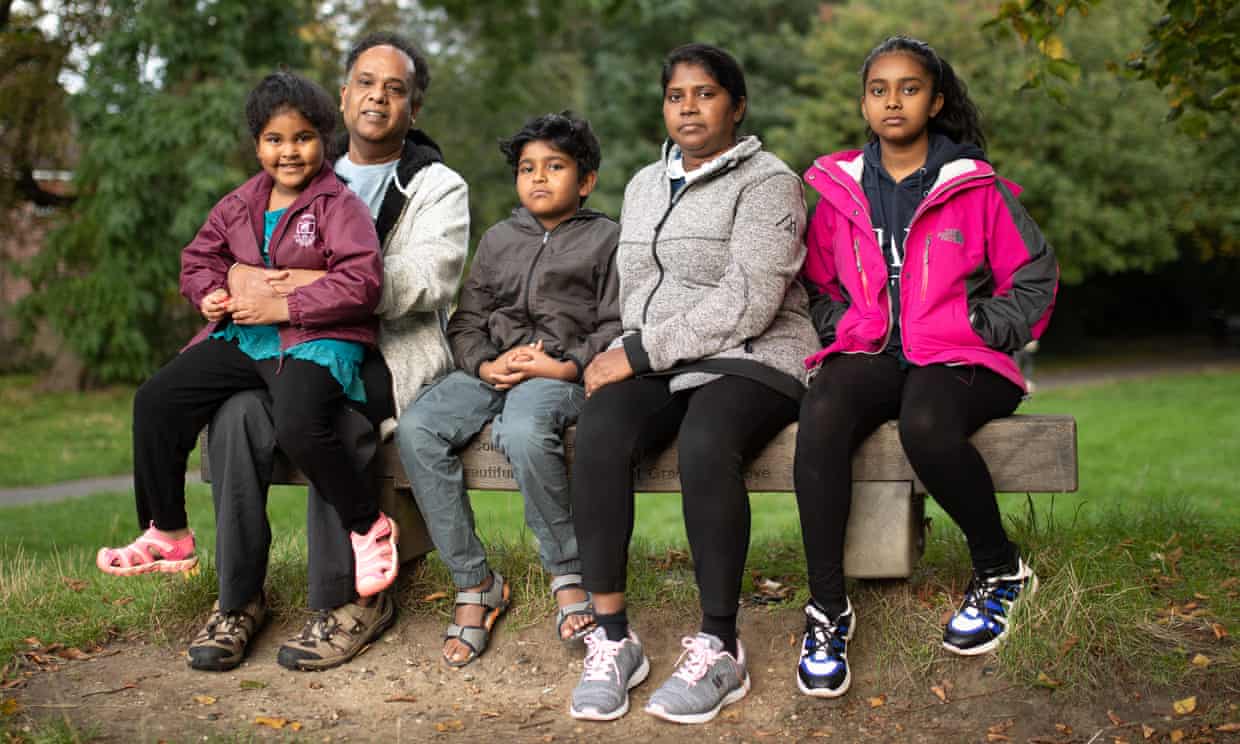
(Photo Credit: The Guardian)
The UK Home Office has been criticised following a serious procedural error which has put a Tamil scientist and torture survivor and his family at risk of deportation to Sri Lanka.
Dr Nadarajah Muhunthan, 47, came to the UK in 2018 on a Commonwealth Rutherford fellowship which permitted him to carry out pioneering research into renewable energy for a period of two years. His wife, Sharmila, 42, was working as a care worker in a nursing home, whilst their three children were attending school in the UK. The couple’s work permit terminated when Muhunthan’s scholarship expired in 2020. Last month, the family was ordered to move from Bristol to a London hotel. Though the two younger children attend school, the eldest daughter and aspiring doctor, Gihaniya,13, has been restrained in the hotel which she compared to a “prison”.
Muhunthan’s asylum claim is based on the persecution and torture he faced at the hands of the Sri Lankan state in 2019, when he returned to the island to visit his sick mother. He managed to escape and returned to the UK. According to The Guardian, the Home Office had sent an email on 20 September this year, saying the family’s asylum claim was being considered, and another email on 11 October saying the asylum claim had been refused on 23 August, 28 days before the family were told their case was still under consideration.
Conservative MP, John Penrose, and the family’s lawyer are challenging the Home Office’s handling of the Tamil family’s immigration case. In particular, Muhunthan’s solicitor, Naga Kandiah of MTC Solicitors, criticised the department’s failure to consider the deteriorating rights situation in Sri Lanka.
“There is growing concern over the state of human rights in Sri Lanka, with the UN high commissioner, Michelle Bachelet, noting that ‘surveillance, intimidation and judicial harassment of human rights defenders, journalists and families of the disappeared has not only continued, but has broadened to a wider spectrum of students, academics, medical professionals and religious leaders critical of government policies’,” he told The Guardian.
Read more here.
We need your support
Sri Lanka is one of the most dangerous places in the world to be a journalist. Tamil journalists are particularly at threat, with at least 41 media workers known to have been killed by the Sri Lankan state or its paramilitaries during and after the armed conflict.
Despite the risks, our team on the ground remain committed to providing detailed and accurate reporting of developments in the Tamil homeland, across the island and around the world, as well as providing expert analysis and insight from the Tamil point of view
We need your support in keeping our journalism going. Support our work today.
For more ways to donate visit https://donate.tamilguardian.com.

